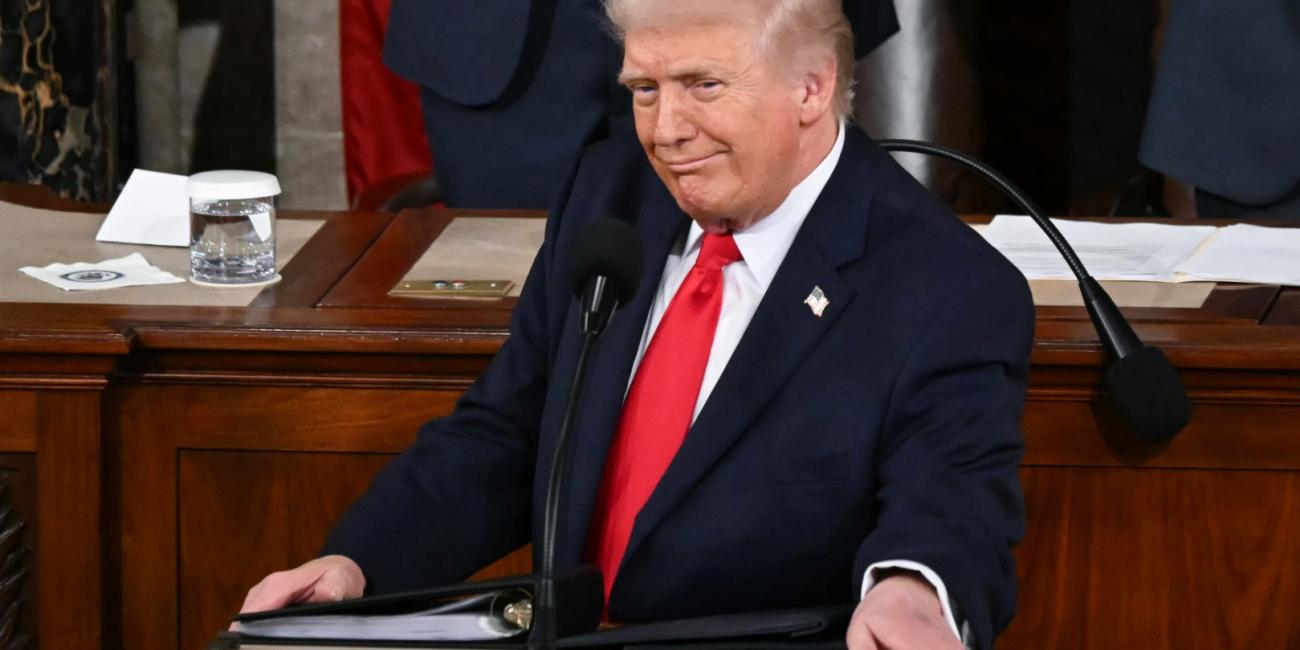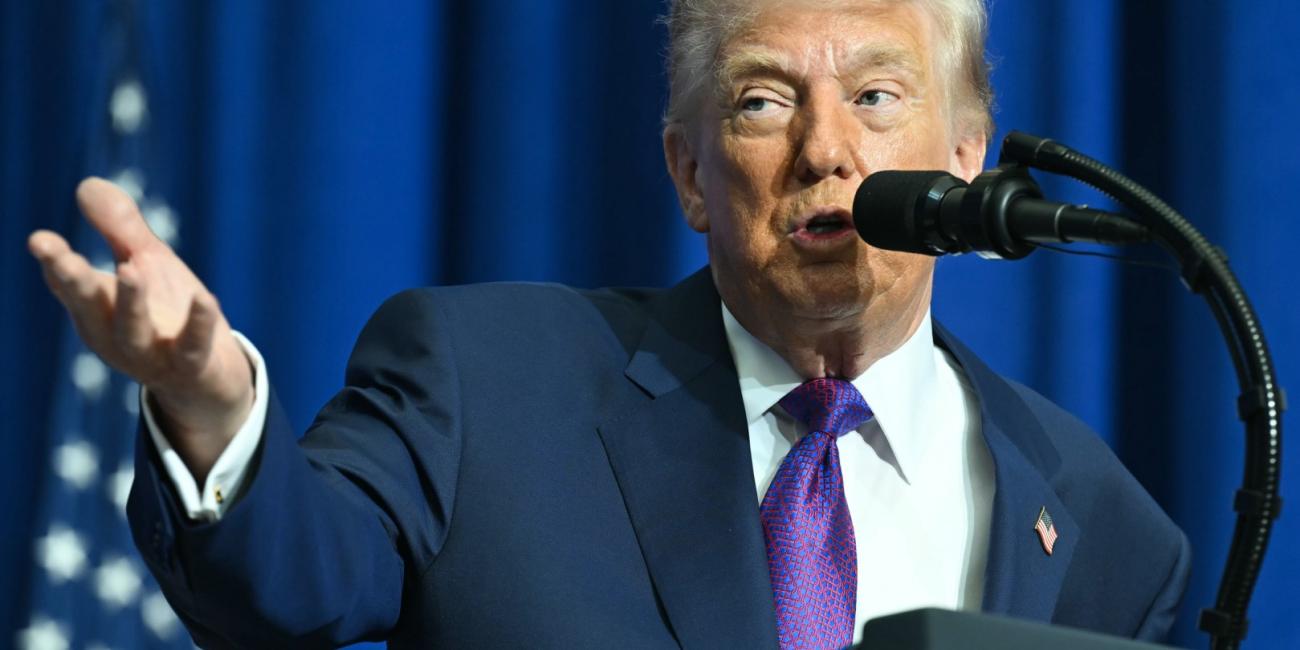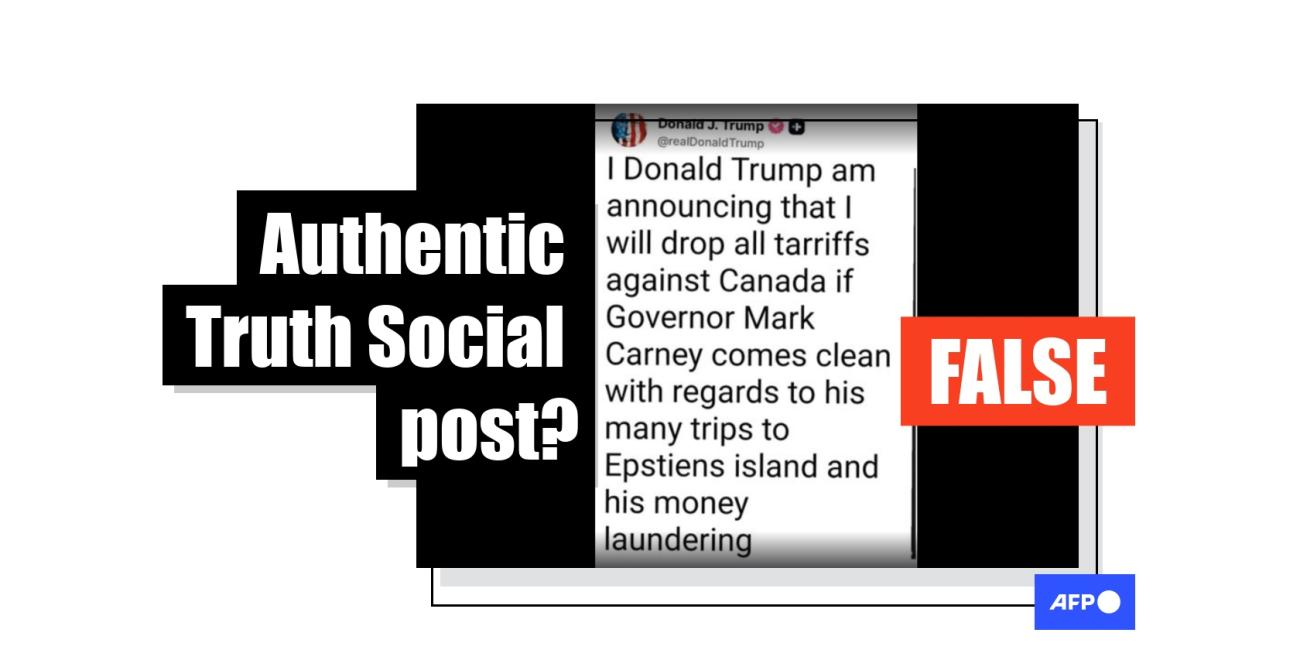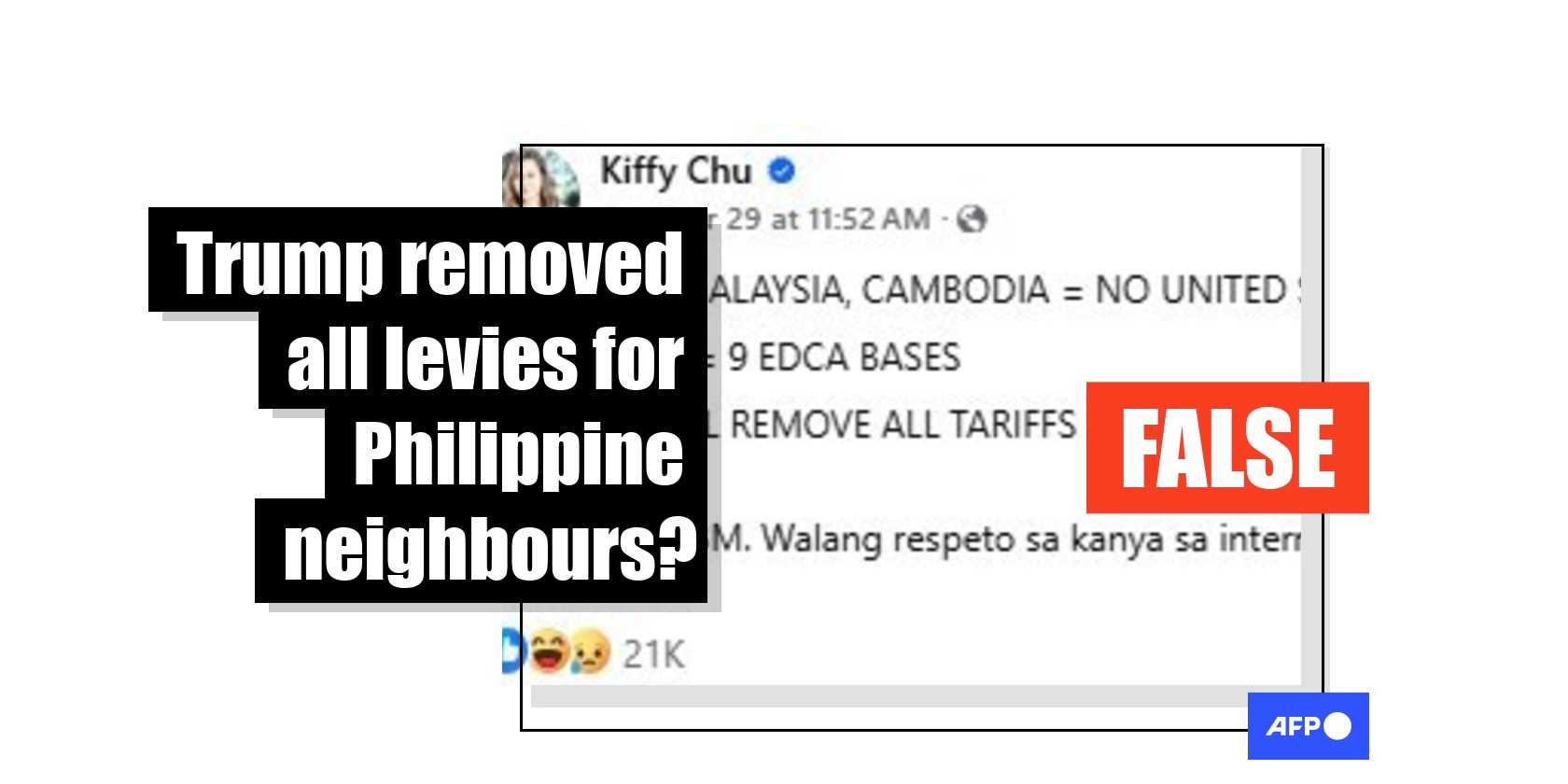
Baseless US tariff claims spread after ASEAN summit
- Published on November 18, 2025 at 05:48
- 2 min read
- By Ara Eugenio, AFP Philippines
US President Donald Trump signed a flurry of trade deals with Southeast Asian governments in late October, but he did not "remove all tariffs" for several countries except the Philippines, contrary to rumours spreading online. Baseless posts claimed Trump maintained high levies for key defence ally Manila while eliminating duties for Thailand, Malaysia and Cambodia. While those countries gained trade concessions, a review of their trade agreements found the tariffs largely remained.
"Poor BBM. The international community has no respect for him," says an October 29, 2025 Facebook post from Krizette Laureta Chu, a blogger who has frequently criticised Philippine President Ferdinand Marcos, referred to in the caption by his popular initials.
Chu claims Trump recently said he would "remove all tariffs for Thailand, Malaysia and Cambodia", while continuing to tax Philippine goods and services at a 19 percent rate.
Her post, which has racked up more than 2,300 shares, suggests the Philippines did not receive preferential treatment despite having "9 EDCA bases" compared to its neighbours with no US military bases.
The United States had two major military bases in the Philippines but they were closed in the early 1990s after growing nationalist sentiment (archived link).
EDCA, or the Enhanced Defense Cooperation Agreement between Manila and Washington, allows American troops to rotate through Philippine military bases and store defence equipment and supplies at them (archived link).
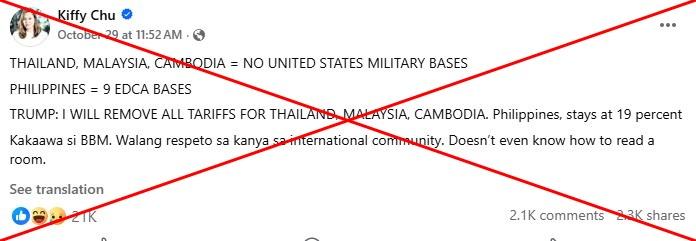
Similar claims spread elsewhere on Facebook as Trump jetted into Kuala Lumpur to attend the Association of Southeast Asian Nations (ASEAN) summit (archived link).
The US leader secured promises of greater cooperation on the key issue of rare earths as Washington scrambles to break China's stranglehold on materials that enable a wide array of modern technology.
However, no official announcements indicate all tariffs he imposed for Thailand, Malaysia and Cambodia had been eliminated.
'Nonsensical'
Trump signed bilateral agreements with Malaysia and Cambodia, giving the United States access to selected goods, investments and critical minerals while keeping the baseline 19 percent reciprocal tariff largely in place (archived here and here).
Meanwhile, Washington inked a framework trade deal with Bangkok, offering exemptions from the 19 percent tariff on Thai goods in exchange for reducing most duties on US exports (archived link).
Overall, these deals provided targeted exemptions for agricultural, industrial and strategic products, and include planned US purchases of aircraft, energy and other goods -- but left the baseline tariff mostly unchanged.
"These were not sweeping symphonies of free trade, but carefully edited duets -- each playing to the rhythm of US advantage," political scientist Jaime Naval, an assistant professor at the University of the Philippines, told AFP on November 7.
He said among ASEAN nations, only Singapore, a long-time US partner, enjoys about a 10 percent tariff rate. Countries like Laos and Myanmar face harsher levies of over 40 percent (archived link).
Trump shaved a single point off a 20 percent levy on Filipino goods following a meeting with Marcos in Washington in July (archived link).
Marcos's press officer Claire Castro told reporters at the sidelines of the ASEAN summit that trade negotiations between Manila and Washington have not been finalised (archived link).
Castro did not respond to AFP's query on the status of these discussions.
Jay Batongbacal, a law professor at the University of the Philippines, separately told AFP posts it is "nonsensical" for the circulating posts to link trade negotiations and defence agreements.
"Trade negotiations are supposed to secure market access and encourage business between the Philippines and the US, while defence agreements establish military cooperation to address mutual security interests," he said.
"These require very different approaches."
AFP has fact-checked other misinformation around Marcos's economic policies.
Copyright © AFP 2017-2026. Any commercial use of this content requires a subscription. Click here to find out more.
Is there content that you would like AFP to fact-check? Get in touch.
Contact us
